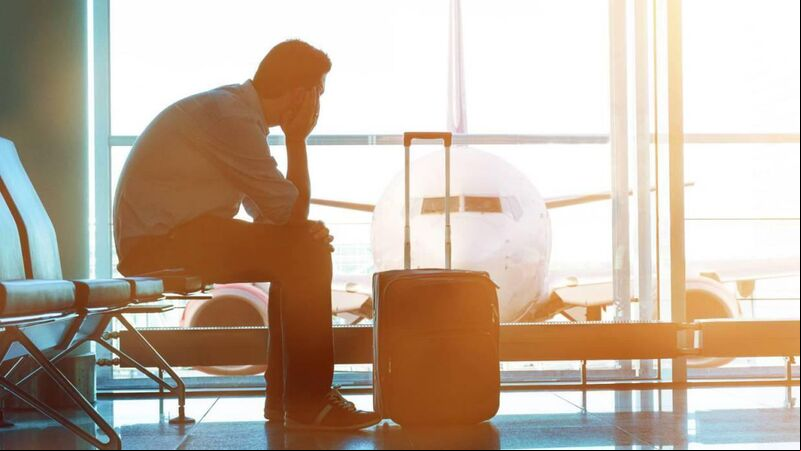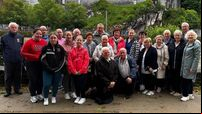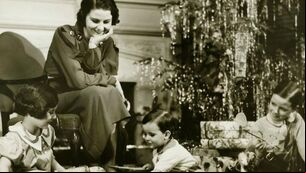Drunken louts should simply be barred from boarding a plane

There’s no such thing as bad publicity, they say, and the CEO of the airline certainly knows how to create a headline.
He caused a stir recently when he suggested that there should be a limit on the amount of alcohol consumed by engers in airports, to reduce disorder on flights.
Mr O’Leary said engers should be restricted to two drinks per journey, to curb what he says is an increase in anti-social behaviour and violence.
He didn’t specify how many drinks should be made available to his engers once they’re aboard the Ryanair plane though, but he did complain that violent outbursts were occurring weekly with alcohol and, in his opinion, it was difficult for airlines to identify inebriated people at the gate, especially when boarding in a group.
Mr O’Leary continued: “As long as they can stand up and shuffle, they will get through. Then, when the plane takes off, we see the misbehaviour.”
The airlines can’t absolve themselves of responsibility as easily as that though. The rules are clear, according to the Civil Aviation Authority (CAA). Whether deliberate or not, it is a criminal offence to be drunk on an aircraft. In fact, the act carries a maximum sentence of five years in prison.
As well as that, engers can only drink alcohol provided by the airline on the flight. You can bring duty-free drinks on to the plane but cannot drink them on board.
Disruptive engers may also be asked to reimburse the airline if their behaviour causes a diversion, a bill which can typically range from £10,000 to £80,000, depending on the size of the aircraft and where it diverts to, but I don’t know if this is enforced.
A few months ago, I wrote about an incident I encountered while I was travelling through Gatwick Airport in London. I called into a bar/restaurant for some breakfast at about 9.30am and the place was busy. There were six guys in their mid- to late-twenties sitting at a table and the drink was flowing.
They were extremely loud. They were playing drinking games while noisily cheering and roaring each other on.
I expected a member of staff to approach them and advise them to calm down. I was there for about 45 minutes and I didn’t see that happen, but they were served with more alcohol when it was obvious to me that they had had enough. Surely the bar staff have a responsibility there.
And what about the responsibility of airline staff?
Drunk engers must present their port and boarding at the boarding gate. Should staff there assess the condition of engers and question their fitness to travel if necessary?
It’s also highly unlikely that the first time their behaviour becomes unruly or noticeable is when they take their seat on the plane.
From my experience, you can spot these characters a mile off, and well before they need to start thinking about getting on the plane.
The guys I saw in Gatwick Airport were worse for wear long before their flight, and that should have been identified before they got into that state. An early word of advice might prevent further carnage.
If my guys had been approached by security or by some other official and advised that their behaviour was being monitored, and could result in them missing their flight, it might have had an impact.
Similarly, people approaching the boarding gate in a drunken state should be refused further progress.
I was on an Easyjet flight last week out of London Gatwick, and across the aisle from me were two guys, in their mid-thirties, drinking small bottles of spirits. They were acting immaturely and spilled a drink over the other chap in the window seat beside them. They weren’t out of control, but they were messy.
They were buying double measures, and whenever they asked for more alcohol, they were given it, no questions asked.
Further up the plane were two females, in their late thirties/early forties. I spotted them earlier and they looked tired and emotional, as they say. About 45 minutes out of Larnaca Airport, there was a bit of disruption. The women were being called out by other engers sitting nearby for vaping.
This led to some heated exchanges between the engers, and when the cabin crew got involved, they got some verbal abuse for their trouble.
The two women were waving to everyone as they were escorted off the aircraft and they didn’t seem the least bit remorseful. Meanwhile, the rest of us were stuck in our seats until their foolishness played out.
Our flight was an hour late already, and this latest incident delayed us further while people waited in the arrivals hall to collect friends and relatives.
If drunk engers were refused entry more often, it would reduce the amount of disruption, delays, diversions and bad behaviour.
So, maybe the authorities should start enforcing the legislation that already exists for dealing with drunks, which would make life more comfortable for everyone concerned, and be a lot easier to enforce than trying to marshal a two-drink rule.







 App?
App?




